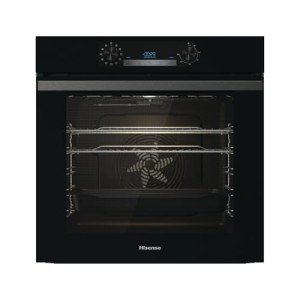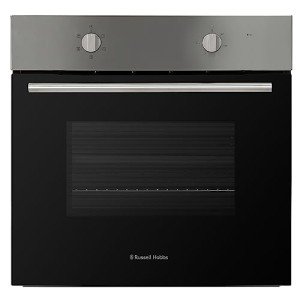You'll Be Unable To Guess Built In Electric Oven's Tricks
페이지 정보

본문

The Comprehensive Guide to Built-in Electric Ovens and Hobs
In today's busy world, modern-day kitchen appliances have progressed considerably to cater to the tastes and needs of modern homeowners. Amongst these appliances, built-in electric ovens and hobs stand out for their efficiency, design, and performance. This post checks out the functions, benefits, setup ideas, and built in electric oven upkeep of built-in electric ovens and hobs, alongside resolving frequently asked questions.
Understanding Built-in Electric Ovens
What Is a Built-in Electric Oven?
A built-in electric oven is an appliance developed to be installed into a wall or kitchen cabinetry, supplying a seamless, integrated appearance in the kitchen. Unlike freestanding ovens, built-in designs save space and typically come equipped with extra functions such as self-cleaning cycles, convection cooking, and various cooking modes.
Types of Built-in Electric Ovens
- Single Ovens: Ideal for smaller cooking areas or those who cook for less people.
- Double Ovens: Offer more cooking space, ideal for larger families or those who entertain often.
- Combination Ovens: These consist of both a traditional oven and a microwave, providing flexible cooking options.
Benefits of Built-in Electric Ovens
| Advantage | Description |
|---|---|
| Space-Saving Design | Fits flawlessly into cabinetry, freeing up counter space. |
| Improved Aesthetics | Develops a modern-day, expert kitchen look. |
| Versatile Cooking Options | Frequently includes several cooking modes consisting of bake, broil, and convection. |
| Energy Efficient | Consumes less energy than conventional ovens. |
Understanding Built-in Hobs
What Is a Built-in Hob?
A built in ovens uk-in hob is a cooking surface set up into the kitchen counter top, Built In Electric Oven integrating flawlessly with the kitchen style. Offered in electric, induction, and gas varieties, electric hobs are renowned for their accuracy and ease of use.
Types of Built-in Hobs
- Electric Hobs: Traditional coil aspects that heat through electrical resistance.
- Induction Hobs: Use magnetic energy to heat just the cookware, making them quicker and safer.
- Ceramic Hobs: Feature a smooth surface with radiant heat beneath, using simple cleaning.
Advantages of Built-in Hobs
| Advantage | Description |
|---|---|
| Quick Cooking Times | Electric hobs heat quickly, reducing total cooking time. |
| Easy to Clean | Flat surface enables fast and simple cleaning. |
| Durable | Generally built to last and endure high temperatures. |
| Versatile Compatibility | Works well with various pots and pans products. |
Setup Considerations
Setting up a built-in electric oven and hob requires mindful planning.
Actions for Installation
- Procedure the Space: Ensure the dimensions of the oven and hob match the assigned area in your kitchen.
- Examine Electrical Requirements: Consult an electrician to make sure electrical wiring can deal with the home appliance's power requirements.
- Placement of Appliances: Position the oven at a convenient height, typically in between waist and eye level.
- Ventilation: Ensure correct ventilation, specifically if your oven includes a range hood.
Vital Tools
- Power drill
- Screwdrivers
- Level
- Determining tape
Safety Precautions
- Always disconnect the power before setup.
- Follow producer guidelines thoroughly.
- Consider working with a professional for electrical connections.
Upkeep Tips
Keeping built in electric Oven-in electric ovens built in and hobs is crucial for durability and performance.
Routine Care Routine
- Cleaning the Surface: Use a soft cloth and manufacturer-recommended cleaner.
- Inspecting Electrical Connections: Check cables and plug for damages regularly.
- Cleaning up Filters: If the oven has a ventilator, clean or replace the filters as needed.
Repairing Common Issues
| Issue | Possible Solution |
|---|---|
| Oven Won't Heat | Examine the power supply and heating component. |
| Heating Inconsistency | Check the thermostat and oven calibration. |
| Hob Not Heating | Guarantee cookware is compatible and inspect the power supply. |
Regularly Asked Questions
1. How do I select the right size built-in electric oven?
Selecting the right size includes measuring your kitchen space and considering how much cooking you usually do. If you amuse often or have a large family, select a double oven.
2. Are built-in electric hobs safe to use?
Yes, built-in electric hobs are safe, especially induction hobs which only heat the cookware, reducing the danger of burns.

3. Can I install a built-in oven and hob myself?
While it is possible for experienced DIY enthusiasts, hiring a professional is advised, especially for the electrical connections.
4. How frequently should I clean my built-in oven and hob?
Cleaning up should be done routinely after usage, with deep cleansing intervals depending upon cooking frequency - usually every couple of months.
5. Do built-in appliances require unique maintenance?
Built-in appliances require similar upkeep to freestanding designs, but appropriate care should be taken with their surrounding cabinets.
Built-in electric ovens and hobs present a blend of technology and style, providing efficiency and modern aesthetic appeals to any kitchen. With appropriate selection, cautious setup, and routine upkeep, these appliances can improve one's cooking experience for numerous years. Comprehending the functions, benefits, and care requirements can empower property owners to produce the kitchen of their dreams-- efficiently and stylishly.
As cooking areas continue to develop into central centers of the home, selecting the best built in ovens and microwaves-in services plays a vital function in daily cooking imagination and pleasure.

